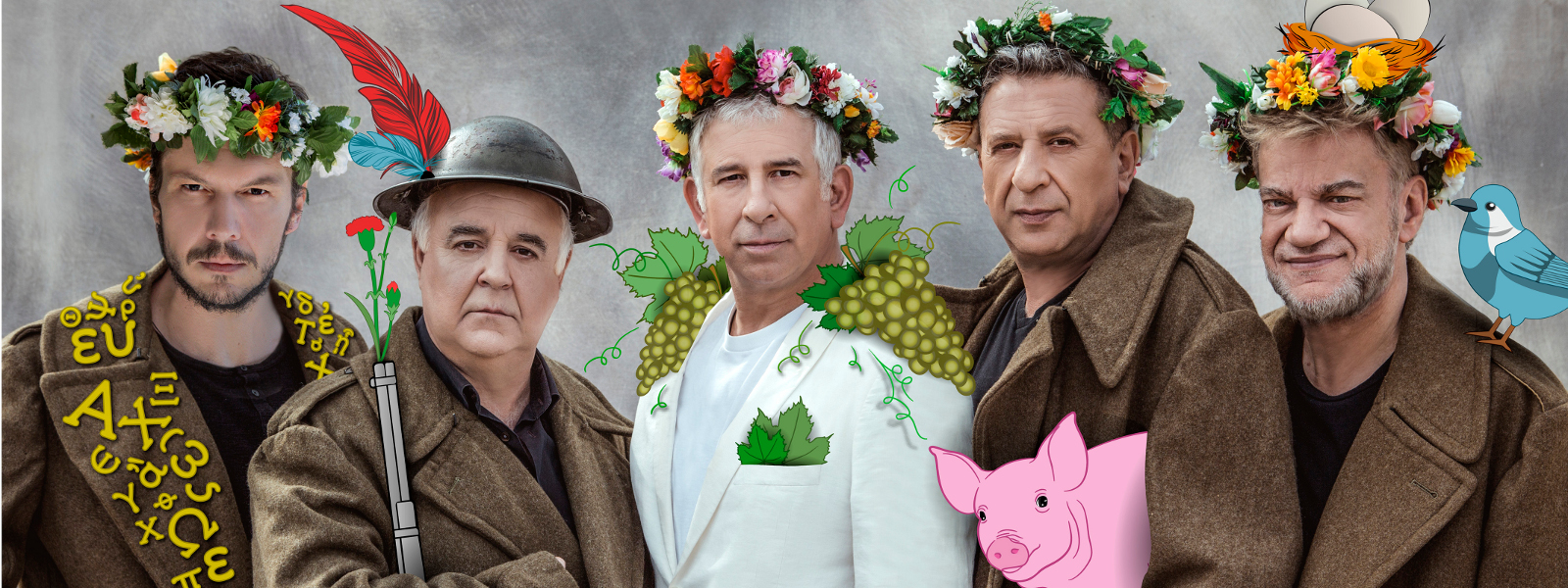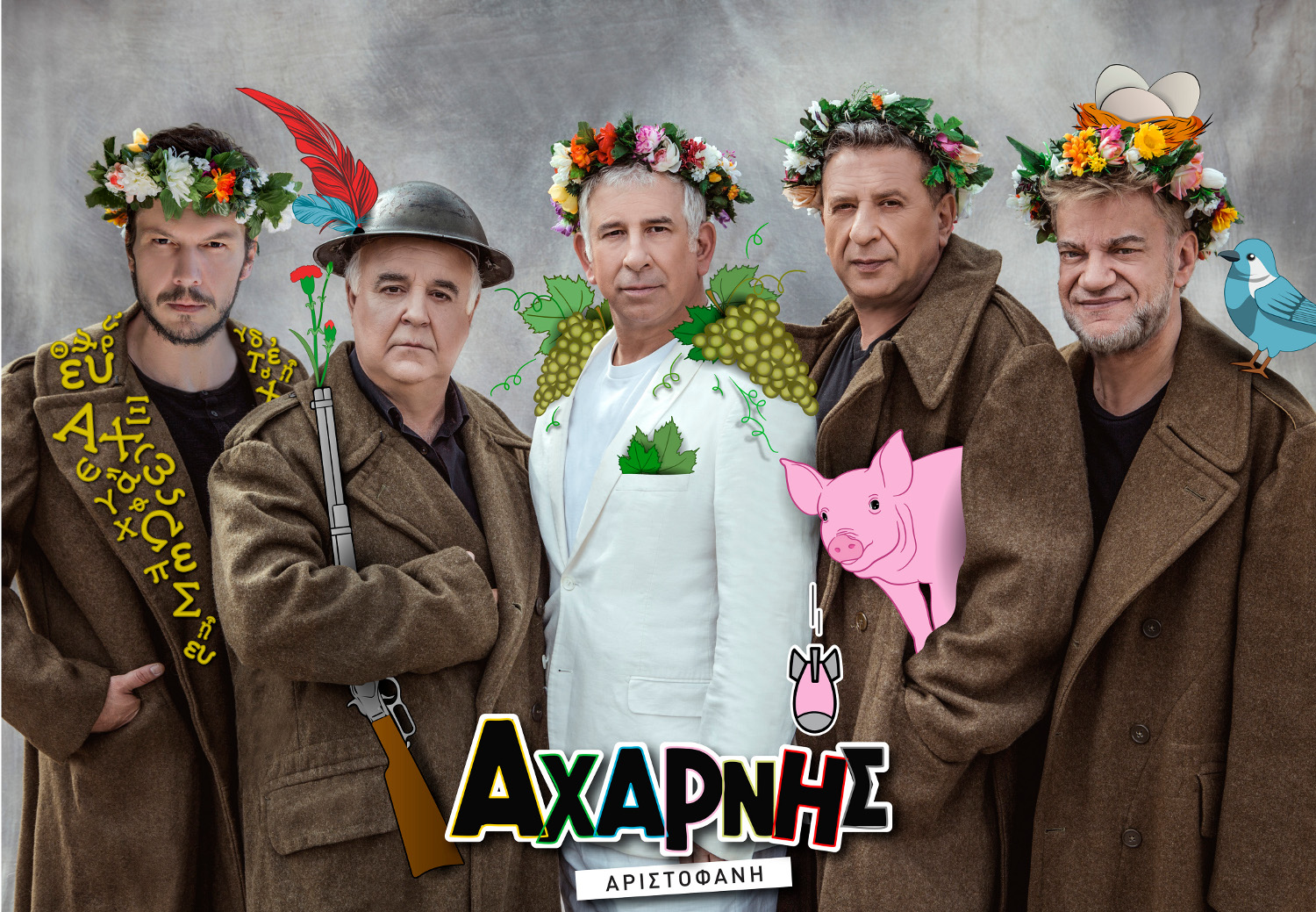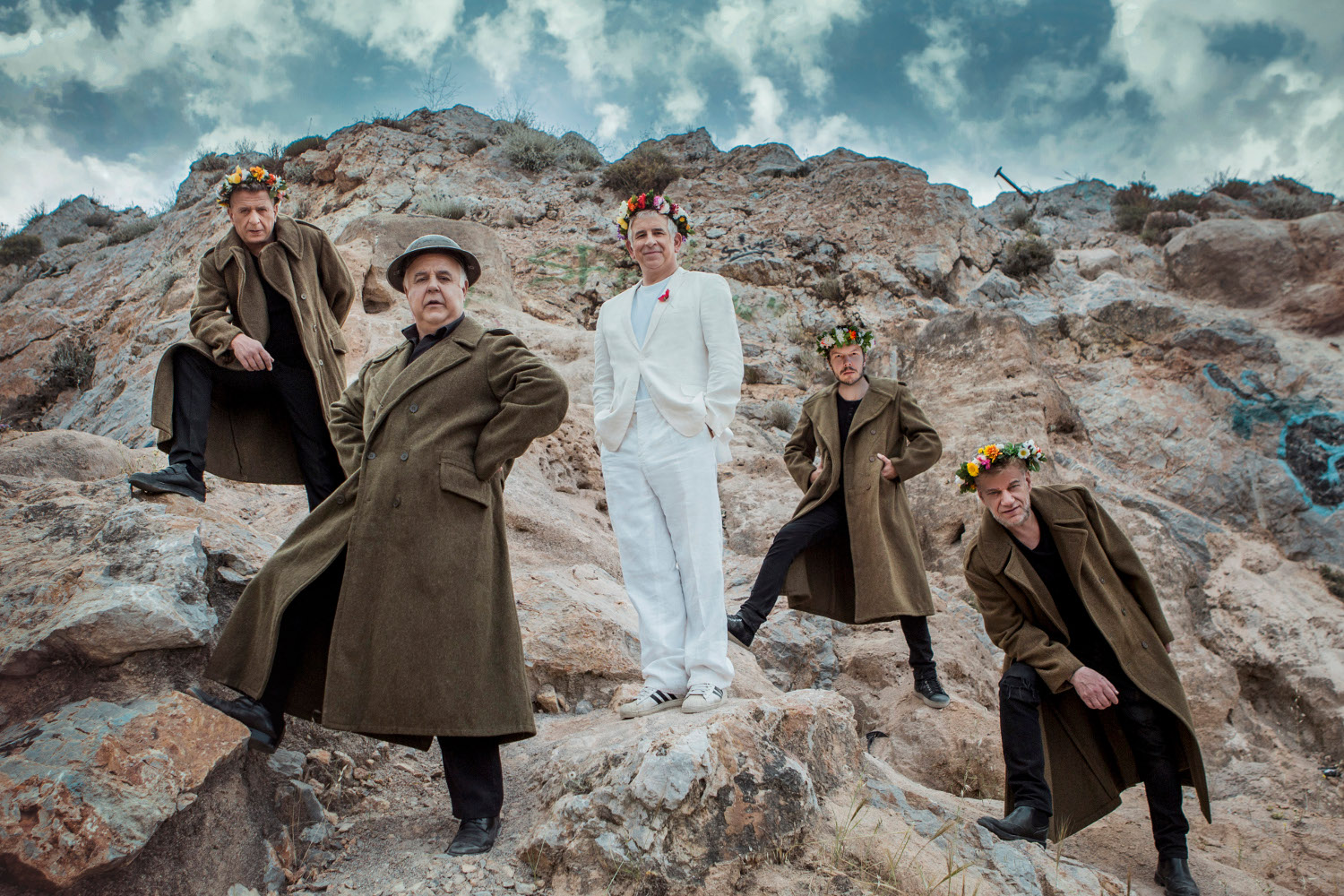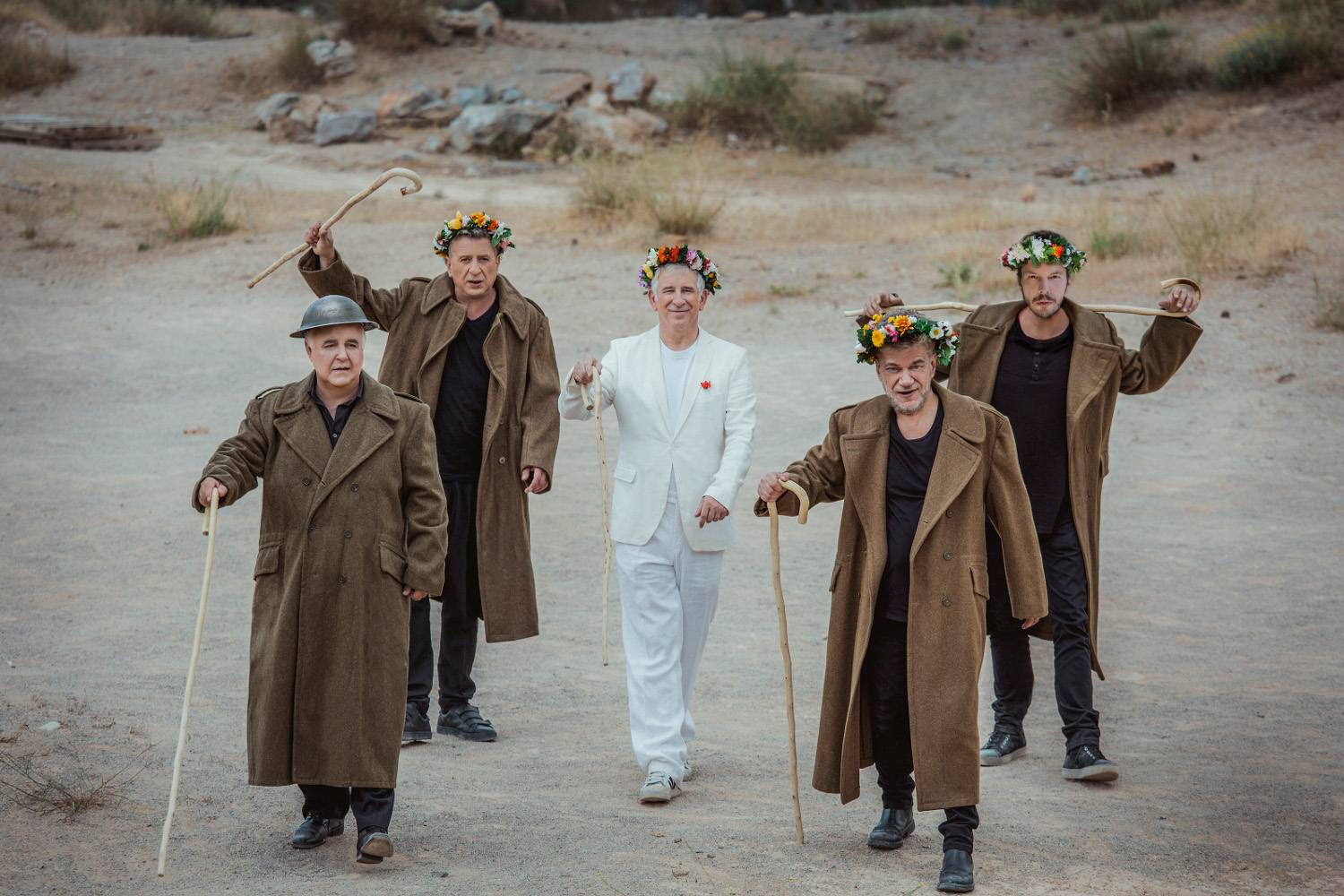One of Aristophanes’ most explicitly anti-war comedies. Dikaiopolis, an elderly farmer frustrated with the ongoing Peloponnesian War and the inability of the Polis to take action, resolves to take matters into his own hands. Accordingly, he sends a message to the Spartans, making an offer of peace. Eventually, he finds himself on the run from the belligerent Acharnians, who wish to take revenge against the Spartans, but also from general Lamachus, shortly before the latter sets out for the battlefield. Will Dikaiopolis succeed in convincing them all about the benefits of peace?
With English surtitles
Direction - Adaptation: Kostas Tsianos
Choreography: Elena Gerodimou, Kostas Tsianos
Set and costume design: Yannis Metzikov
Music: George Andreou
Musical coaching: Panagiotis Tsevas
Assistant to the director: Loukia Stergiou
Artwork - Programme design: Karolos Porfyris
Photos: Ioanna Chatziandreou
Cast: Petros Filippidis, Pavlos Haikalis, Kostas Koklas, Ioannis Papazisis, Takis Papamathaiou
Chorus: Nikos Vatikiotis, Alexandros Zouganelis, Panagiotis Kammenos, Panagiotis Katsolis, Konstantinos Korakis, Vangelis Kyparissis, Iraklis Kostakis, Alkiviadis Maggonas, Pavlos Pavlidis, Marios Petkidis, Grigoris Stamoulis, Giorgos Tsourounakis, Charis Fleouras, Charis Chiotis
Production: THEAMA MARTA
The Acharnians was first presented at the Lenaia festival, in the sixth year of the Peloponnesian War (425 B.C.), earning the then-19-year-old Aristophanes his first prize. In this play, Aristophanes sets out to ridicule war and warmongers, expressing people’s longing for peace. The comedy is mainly set in rural Attica, in Acharnae (modern-day Menidi).
Aristophanes is fully aware that comedy as a genre hails from religious ceremonies of fertility. Throughout The Acharnians there are many references to Dionysus. In one memorable scene, Dikaiopolis and his family perform a phallic procession and sing a phallic song. There are also excellent comic scenes, typical of the Megara farces. The lively chorus of the old coal-miners of Menidi transforms this wonderful comedy into a frantic Dionysian feast. Our performance draws on popular tradition, echoing the Dionysian spirit so prominent in Aristophanes’ The Acharnians.







